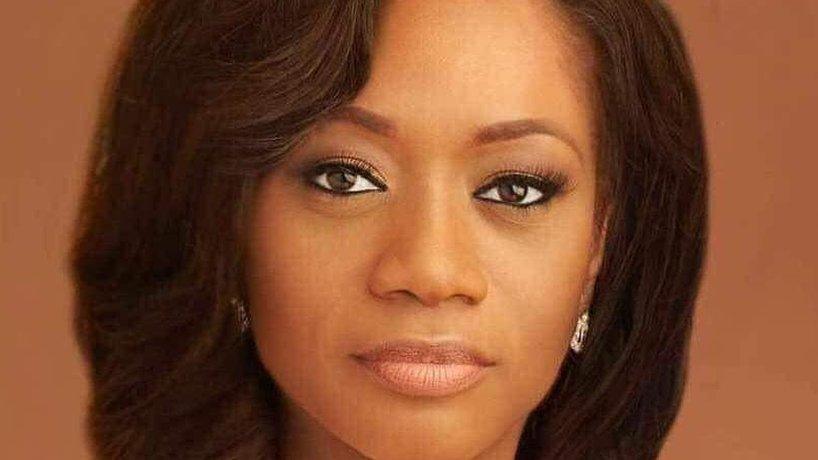What's the issue with this banker's wardrobe?
- Published

Aisha Ahmad's profile photos angered conservative religious elements in Nigeria - but the online attacks also sparked a backlash
The appointment of a Muslim woman to the post of deputy governor of Nigeria's central bank kicked off a debate when some conservative Muslims from her home region accused her of dressing "immodestly" - but others immediately leapt to her defence.
Aisha Ahmad is an executive at Diamond Bank, one of Nigeria's leading financial institutions. She was picked by President Muhammadu Buhari to replace Sarah Alade, a deputy governor at the central bank, who retired in March after 23 years in the job.
The 40-year-old Ahmad is from Niger state in northern Nigeria, an area where girls are often poorly educated in comparison with the south of the country, and where opportunities for women in business can be limited. Despite this, local reports note that she earned several degrees, including one from the UK's prestigious Cranfield School of Management, and embarked on a career with several top banks.
However immediately after the news of her appointment filtered out, the discussion turned from her qualifications - with some questioning her relative youth - to her wardrobe. Specifically, photos taken from her social media accounts prompted criticism from conservative religious figures in her native northern Nigeria.

Aisha Ahmad in one of the pictures that caused the storm
Some clerics with big online followings quoted the Koran and insisted that women should dress "decently" - the photos they object to show her in a dress, with her hair uncovered.
One critic, Abubakar Almajiri, called Ahmed a "sex worker" on Facebook and said her appointment was "a disservice to us Muslims." Almajiri slammed President Buhari and said: "We expect him to choose, if not a good seed among us Muslims, but a little bit better Muslim for that position."
Most of Ahmad's critics appear to be men, and several expressed anger at the banker's success simply because she is a woman. But some female social media users jumped in. One, Saratu G Abdul, commented that Ahmed should be a "role model" and that various Koranic verses "prevent women from exposing their flesh".
But just as the comments about the photos started gaining traction on social media, a backlash formed against the religious conservatives.

You might also be interested in:
Gimba Kakanda, a Nigerian writer, was one of those who came to the banker's defence. Speaking to the BBC he said the critics went too far. He and others pointed out that Nigeria, particularly the north of the country, has serious problems that has nothing to do with how women dress.
"It's embarrassing that we are actually debating the body and dress of a woman, with over ten million of our children out of school, the largest on a planet that has China and India, places with over a billion people," Kakanda told the BBC.
"Imagine if we had channelled the energy and outrage we put on to demonise Mrs Ahmad into addressing our systemic poverty, low literacy rate, political corruption, and decaying infrastructure," he said.
Ahmad now faces a confirmation vote by the Nigerian senate.
Blog by Nasidi Adamu Yahaya, external, BBC Hausa
You can follow BBC Trending on Twitter @BBCtrending, external, and find us on Facebook, external. All our stories are at bbc.com/trending.